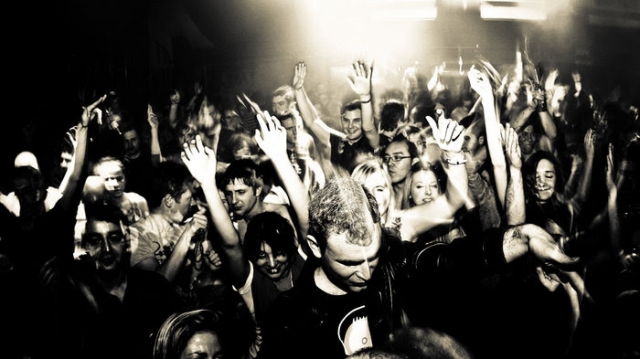UK’s Guardian Urges Clubbers to Seek Out Conservative Tbilisi
TBILISI – The less-than-inspiring nightlife of Georgia’s capital Tbilisi got an unlikely endorsement last week from the UK-daily, the Guardian.
The paper’s reporter Arthur House featured the Georgian capital and several other nations in an article focusing on the burgeoning club scene in Eastern Europe and former Soviet republics.
“While clubbing in London has been entering its death throes, it has been coming of age in Eastern Europe,” House noted.
He mentioned Tbilisi’s nightclubs Mtkvarze and Bassiani, Luzztro in Warsaw and Moscow’s ARMA 17 as being at the top of his list of clubbing destinations.
“It is not just about the venue and music; there is a real sense from the crowd that this is a new and exciting scene, something positive and long overdue.”
According to House, he found striking similarities between the clubs in countries like Georgia and Ukraine to the underground music culture of post-reunification East Berlin in the early 1990s – a scene that Irish band U2 so successfully channelled on their seminal 1991 album Achtung Baby, which was recorded in the former German Democratic Republic capital.

Mtkvarze, which the Guardian article describes as a Soviet-era fish restaurant-turned-nightclub overhanging the Kura River, “Share the magic ingredients that allowed clubbing to thrive in East Berlin: cheap rents and plenty of space, often in the form of unused Communist-era buildings, and creative, open-minded young people.
House noted that the generation born in the 1990s – the first post-Soviet generation, “Is looking forward, rather than back into the past…for many of them, techno is the soundtrack of the future.”
A Welcome, But Confused Response
The Guardian’s article, while welcomed, has left many Georgians and foreigners who live in the country scratching their head.
Georgia is known for its viticulture and nature tourism, but Tbilisi’s nightlife has a notoriously poor reputation amongst most locals. Residents frequently complain that the city is short on options outside of 24-hour khinkali establishments that cater to after hours diners and less-than-salubrious bars that are usually reserved only for men.
While the venues mentioned in the Guardian article, as well as the gay and lesbian-friendly Cafe Gallery and the nearby Canudos Bar, attract a young and progressive crowd – they remain few and far between and appeal mainly to a small number of Georgians and the local expatriate community.
Georgia remains a deeply conservative and patriarchal country where the Georgian Orthodox Church and radical ultranationalist groups hold significant sway over society.
The two groups’ often unhinged diatribes against Western values have become ever more extreme in recent years and have begun to attract a following even in urban centers such as Tbilisi.
It is not uncommon to hear Georgian twenty-somethings in Tbilisi parrot the Church and Rusian TV’s condemnation of bars, nightclubs, music festivals - and the culture that comes with them - as being incompatible with local traditions.
The constant harassment of women’s and LBGT rights groups, attacks on vegetarian restaurants and church protests outside rock and electronic music festivals, has forced many of Georgia’s experimental artists and musicians – those not viewed as “upholding traditional values” to the fringes of Georgian society.
Club culture, with its open use of chemical substances and free sexual mores, is the ultimate antithesis to most of the mainstream Georgian society.
Georgia continues to be a country where pre-marital sex for women and obedience to one’s husband is considered sacrosanct. A burgeoning and widely accepted club culture that emphasizes a free-for-all for both genders is unlikely.
House noted in his article that “Poor, but sexy cities”, like Tbilisi, have a multitude of problems where a techno scene can be a healthy outlet for pent up emotions. That music and dance clubs provide a hedonistic haven from the chauvinism, nationalism and homophobia that permeates Georgian society.
For the post-Soviet generation, the country’s economic stagnation and a growing social backlash against the pro-Western aspirations of successive governments is forcing Georgia’s young people to consider options abroad.
For those who find themselves confined by a certain powerful sector of society’s rigid definition of traditional values and the lingering effects of Soviet conformity, even the existence of a small counter-culture movement can be seen as nothing but a net positive for future generations.
By Nicholas Waller












